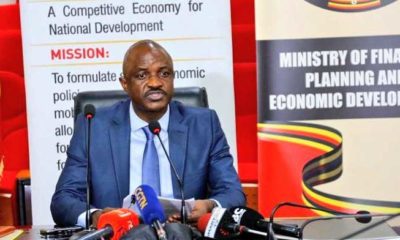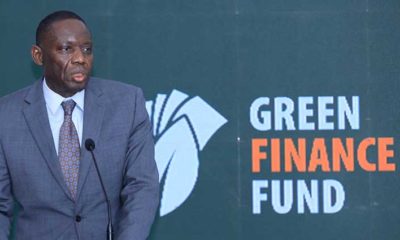Ramathan Ggoobi
The untold story of Uganda’s oil
You can’t leave Uganda behind simply because they’ve failed to read information on ministry websites
The Uganda Government might have become the latest victim of an “oil capture”
When oil was confirmed in Uganda nearly eight years ago, development partners, and several other experts in the sector, gave some of us who, are watching the goings-on in the oil sector from a distance, the opportunity to confirm what we have always suspected — the possibility that Uganda’s oil might not escape an “oil capture”.
Whose interests do oil regulators serve?
Economist George Stigler introduced the concept “regulatory capture” in 1971, where in his work, “The Economic Theory of Regulation” he explained that a sector may suffer from cognitive capture. This is when the mindset of regulators is captured by those whom they regulate. I have no doubt, given what I saw at this conference, that the oil sector has already been ‘captured’. The debate left me wondering whose interests do our officials at MOEMD, and some of the young elites in this country, are serving.
This has been brought about by one key problem that has been created by our weak institutions in the country — the information problem. The oil companies, and their “captured” regulators at MOEMD, have more information than you politicians and other Ugandans have. We have to trust what they tell us. The few young men and women that government trained to help it secure fair deals from these multinational oil companies have also been captured.
The companies have also trained a few other young Ugandans, mainly former journalists, in a some oil jargons and that they use these few lessons to claim their expertise in the field. Then, typical of Ugandans, these young men and women do not hesitate to brand whoever attempts to question the goings-on in the sector as ignorant. Some of them, acting as impulsive propagandists of these oil companies, even have the audacity of telling Ugandans how the oil sector is an international field, very sophisticated and very complex for average Ugandans to comprehend, let alone to work in. So the “local”, uninformed Ugandans should back-off and wait for some fringe opportunities that might come their way as the sector peaks!
I challenged the officials at MOEMD, led by Mr. Ernest Rubondo, the Commissioner for Petroleum Exploration and Production, to provide the public with more meaningful, simplified, and easy-to-understand information about the developments in the sector. Unfortunately, they went on the defensive, claiming that the problem is us Ugandans who have failed to read and understand the “massive information” circulating around the internet, and a few pamphlets that they have written in several languages containing the usual sweeping statements about oil.
Civil society is incapacitated
The moderator of the day, a former journalist, who nowadays enjoys the title “Expert/Researcher in Oil”, was at hand to silence the “oil ignorant” who were “shaming us when they ask for more transparency and more information, yet there are oceans of information about oil in Uganda.”
Mr. President, did Ugandans shame you when they asked for information concerning the Kyankwanzi resolutions to have you as a sole candidate? Didn’t you go an extra mile to finance all NRM MPs and other party leaders to go around the country and explain these resolutions to the wananchi? Why then do your people at MOED and their agents think it would be shameful for Ugandans to ask for clarifications on the way their oil resources are being extracted, developed, and managed?
To make matters worse, the civil society organizations that are meant to play an advocacy role on behalf of communities and other Ugandans are themselves not well equipped. This is what exactly brings the ‘curse’ problem in natural resources. The resources become dominated by a few people who crowd out the masses on technical grounds. Countries that have escaped this curse have moved every step of the exploitation of the resources with their people. Mr. President, you cannot afford to leave the people of Uganda behind simply because they have failed to read the information on ministry websites.
Ugandans — at the national, local government and community levels — are understandably nursing high expectations related to oil discovery. This is on the account of over exaggeration of the benefits that are likely to accrue to the people of Uganda from oil. It is politicians, led by you Mr. President, and other “populist” players in the industry, that have oversold the oil sector’s potential to turn around the lives of the people of Uganda. Your aim is to mobilize political support, get re-elected and continue to rule the country. Other players, especially the young men and women employed by the oil companies, and their hangers-on, are painting a rosier picture of the oil sector to get their paycheck signed.
Unrealistic expectations
However, you are running the risk of raising unrealistic expectations. You have claimed that the oil sector will create a lot of jobs for the youth. Many young people are positioning themselves by enrolling for oil-related courses in various education institutions here and abroad hoping to get easy oil money. Several institutions, some without sufficient capacity to teach oil & gas disciplines, are calling upon Ugandans to enroll for programs that will enable them to work in oil sector. The baseline industry study has put the total number of jobs (both direct and indirect) to 150,000 only. Yet tens of thousands, if not millions, are hoping for jobs courtesy of your exaggerations.
At the university where I teach many young people have been asking me what courses they should do to enter the oil industry. We are trying to guide them that the sector is not for everyone but they often say, “But the President said we are going to get jobs.”
David Rutaro, the former Guild President of Makerere University, told the conference that recently a group of young men and women graduated in oil-related courses from Scotland, where they were sponsored by the oil companies operating in the Albertine Region. They came back with high hopes that on return they would get employed by these companies that sponsored their education. On reaching here, the companies told them they were not under any obligation to employ them. What the poor young men and women did not know was that the scholarships extended to them were just part of the corporate social responsibility by the oil companies. These are some of the issues that might cause resentment among Ugandans. If these are the companies in the oil industry, they sponsor Ugandans to study oil-related programs, but are ready to employ them, then who will employ them?
With the high youth unemployment level in the country, exciting young people with potential jobs in the oil sector which are, as a matter of fact, not there, is a very big mistake. We need to develop the non-oil sectors such as agriculture, tourism and small scale manufacturing, and guide the young people to seek opportunities there and forget about oil.
Another mistake, Mr. President, is your pronouncements how Uganda is at the verge of attaining economic sovereignty. That “now that we got oil we would secure enough revenues to finance our national budget and liberate the country from donor-dependence.”
You even generated this impression that because of oil discovery, Uganda will rapidly develop into a middle income. Vision 2040 is talking of Uganda building rockets and nuclear plants in the next few year! I am aware that in economics, you can induce growth using “rosy scenario” but ours seems a wild perfunctory dream that is bound to cause sleep malfunction!
Comments


























